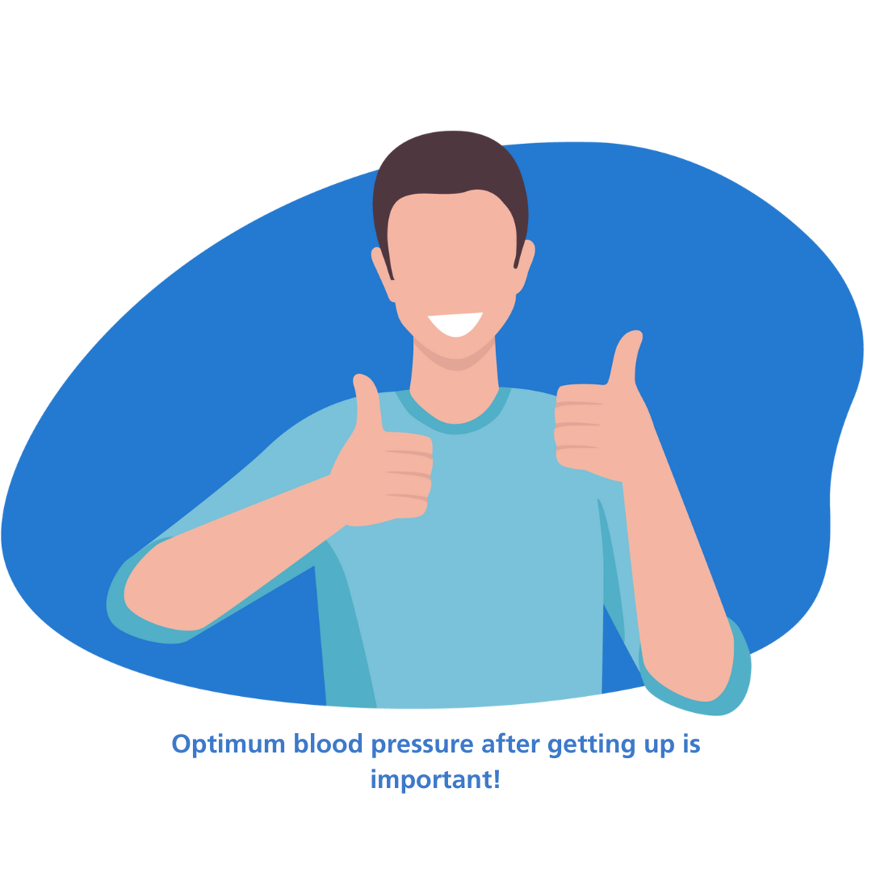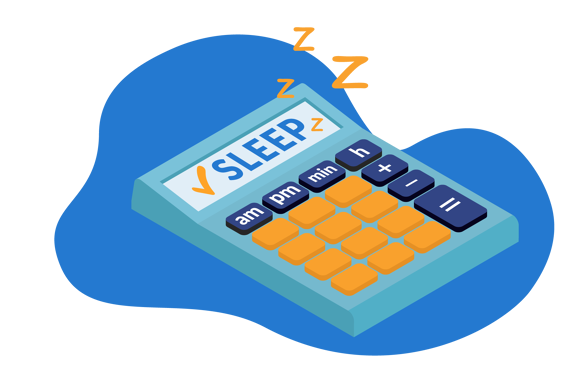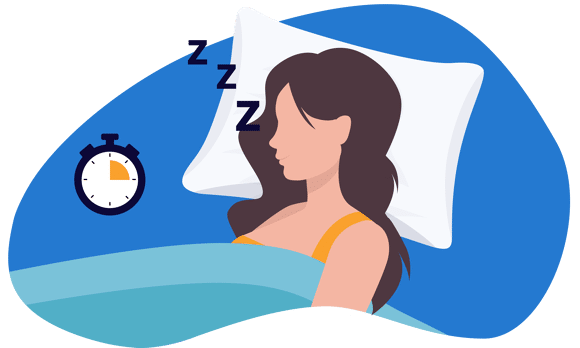How high should blood pressure be after waking up?
After waking up, blood pressure should ideally [1] be <140 mmHg systolic and <90 mmHg diastolic. But what do these values actually mean?
- Systolic blood pressure (<140 mmHg): This is the pressure in the arteries when the heart beats and pumps blood into the body. A systolic value above 140 mmHg is considered elevated and may indicate the onset of hypertension [2].
- Diastolic blood pressure (<90 mmHg): This is the pressure in the arteries when the heart is resting between beats. A diastolic value above 90 mmHg can also indicate high blood pressure and should be monitored.
How do you notice symptoms of high blood pressure in the morning?
High blood pressure in the morning can manifest through various symptoms:
- Headaches: Especially in the back of the head or temples.🤕
- Dizziness: A feeling of lightheadedness that may occur shortly after waking up.😵💫
- Fatigue: Feeling exhausted despite getting enough sleep. 🥱
- Vision disturbances: Blurred vision or flickering in front of the eyes.👀
These symptoms are warning signs that should be taken seriously, as high blood pressure in the morning can be a risk factor for cardiovascular diseases [3].
Causes of High Blood Pressure in the Morning
High blood pressure in the morning can have various causes. [4] Here are some of the most common reasons:
- Natural rise in blood pressure: It is normal for blood pressure to rise in the early morning hours as the body prepares for the day ahead. However, this rise can be more pronounced in people with high blood pressure.
- Sleep apnoea: The sleep disorder sleep apnoea leads to repeated breathing pauses during sleep, which can increase blood pressure, especially in the morning.
- Medication intake: In some people, the effect of blood pressure-lowering medications may wear off overnight, leading to a rise in blood pressure in the morning.
- Stress and anxiety: High levels of stress and anxiety can also contribute to increased blood pressure in the morning.
- Unhealthy lifestyle habits: A diet high in salt, excessive alcohol consumption, and lack of exercise can particularly influence blood pressure in the morning.
What can you do about high blood pressure in the morning?
If you regularly notice high blood pressure in the morning, there are several measures you can take:
- Lifestyle changes: A healthy diet, regular exercise, and weight loss can lower blood pressure. [5]
- Optimise medication intake: Talk to your doctor about adjusting your medication if you notice high levels in the morning despite taking pills.
- Stress management: Relaxation techniques such as meditation or yoga can help stabilize blood pressure.
- Measure blood pressure in bed in the morning: Regularly measure your blood pressure right after waking up to monitor the values.
What does high blood pressure in the mornings mean?
High blood pressure in the morning, also known as morning hypertension, can indicate inadequate blood pressure control.
It is known that blood pressure rises in the morning, but if the values are too high, it can increase the risk of strokes, heart attacks, and other cardiovascular diseases.
Therefore, it is important to monitor these values and discuss them with your doctor if necessary.
Why is optimal blood pressure important?
Optimal blood pressure is crucial to minimize the risk of cardiovascular diseases. Normally, blood pressure in adults should be below 120/80 mmHg.
Long-term high blood pressure [6] can lead to serious health problems, including heart failure, kidney damage, and vision loss.

Conclusion
High blood pressure in the morning is a serious issue that should not be ignored.
Excessive blood pressure in the morning can indicate underlying health problems and increase the risk of cardiovascular diseases.
It is important to regularly monitor blood pressure, especially after waking up, and take appropriate measures to control the values.
By leading a healthy lifestyle, taking the right medication, and recognizing symptoms early, you can keep your blood pressure in the healthy range and improve your overall health.
Feel free to let us know whether you regularly measure your blood pressure in the morning or not: Just leave us a comment!












Alternatively, message us directly via the Contact Us page.